Gifts for Your Parents
Struggling to buy gifts can be stressful as time draws short and your imagination leaves you wondering what in the world to buy. This list will help you find something for everyone on your list, whether they were naughty or nice!
The recommended gifts below are all gifts I have personally used or have given to someone who has loved it! I have organized the gifts under headings to help you sort through easily and perhaps find just the perfect gift! Click on each gift name to be linked directly to the product page for purchase and more info. The slide show above shows all the gifts with links and can be shared with your friends easily.
Tech and Gadgets
If you travel or you need a gift for someone who does, this is a great gift and less than $100. We have never lost our luggage throughout our travels, however, my husband loves having a Trak Dot in his suitcase and tracking exactly where his suit case is located. Earlier this year I was driving from Lubbock, TX to Santa Fe, New Mexico. I had a Trak Dot in my suitcase and my husband was able to track my car online and see exactly where I was throughout the drive – providing some security of being located if I had any car issues. You purchase the Trak Dot and the pay an annual fee to activate the Trak Dot.
There are a variety of trackers available that measure, keep track of exercise/steps, your heart beats per minute, you resting/standing pulse, your running/walking route, etc. I use an Apple iWatch, however Fitbit/Garmin has a variety of choices that start around $25, with a variety of bells and whistles. What I love is the accountability – it is totally what helps me keep moving. I do much better being reminded to do my exercise, I love tracking my achievements, and I can share my results with my family and friends if I want to. If you have someone in your life who may need that little push or motivation, this is the perfect gift.
I upgraded to an iPhone 6s this year, with the 5.5 inch screen. Wow, has that been a game changer for me – I can actually see everything so much better. I never thought I would be using my cell phone as much or more than my laptop but I am. The ease of use of a larger phone as my fingers become less nimble has helped considerably and enabled me to complete work, shopping, tasks, notes, on the go and anywhere I may be.
Cordless Blu-tooth Headphones (here’s another option from SkullCandy)
These are great for the active folks on your list. No need to strap you phone around your arm and no worries about cords getting mixed up and ripped out of your ear while you are on your weight machine. These headphones work wirelessly through blu-tooth to listen to your favorite music or podcast. There are a variety of price options available. I’m not convinced that the most expensive options last any longer than the cheaper options. I have gone with the cheaper option and when they break I can easily replace.
Alexa is my new best friend. I love coming home and asking Alexa to play whatever music I am in the mood to listen to. I have Alexa track my grocery list and constantly ask for reminders and ask to put items on my calendar. It takes a little bit of time to set up your phone with the Alexa, but once you take the time to do so, you will love the options available.
In-Home Entertainment and Memberships That Improve Your Life
This is a great gift that gives all year long. You can download Audible, it’s an App, to your phone, laptop, iPad, or tablet – whatever your preference. For only $14,95 per month you can download a book to listen to, often saving up to 50%. The inability to get out of the house, or hold a book or Kindle for a long period of time makes Audible a great option to listen to the books you love. I use my Bose noise-cancelling headphones to listen to Audible, which helps cut out all interference and I don’t miss a word.
Who can live without viewing “The Crown?” I have loved this series and look forward to the next episode. Grace and Frankie, House of Cards, movies, documentaries, travel show, foreign films, classic films, oh so many options! Basic membership is $7.99/month to Premium membership of $11.99. An internet and/or Wi-Fi connection is required.
This membership provide free shipping from Amazon, provides free storage for your photos, provides you access to Amazon Prime Music, Video and Reading. There is a $99/year membership fee. This has been well worth it for me as I learn to order more items through Amazon and have them directly delivered to my home. The savings and convenience are amazing.
This service allows you to submit your grocery list and have the groceries delivered right to your home. You need to download the Shipt app to your phone/iPad and you can make your grocery list. Your list is given to a local shopper who will go do your shopping and delivery it to your home and the time you have schedule. I love this app and service. It remembers my grocery list and helps me not forget items, it helps with my discipline to not buy impulse items, and I truly feel the shopper has done a better job picking produce than I have. This service is invaluable for you to use to deliver food and other items to your family members who have difficulty getting out or perhaps are asking their neighbors to pick up a few things. This allows you complete control over what is purchased and the amount spent. It is a monthly or annual membership (sometimes they offer a special). A six-month membership is $49 and the one year membership is $99.
There are many things I like about The Medicine Shoppe Pharmacy. We have three in our local area and I love the fact that they provide free delivery of medications. They will meet you prior to hospital discharge to ensure your medications are at your home upon discharge, and they will bubble-wrap your medications for no additional cost. Using one pharmacy provides you protection from medication mismanagement and duplicate medications. Pharmacists who know their patients and have their medication profiles on file will be aware of possible harmful drug interactions or allergies to certain drugs. The pharmacist also will be able to discuss possible side effects; what foods, drinks, or activities that should be avoided while on a medication; what to do if you miss a dose; and a wide range of other helpful information. The Medicine Shoppe will also deliver non-pharmaceutical items you may need. Upon request The Medicine Shoppe is happy to bill you on a monthly basis, allowing you to maintain documentation of items purchased.
Personal Products: Pampering Gifts for Your Parents
Charlotte Tilbury WonderGlow Face Primer
I love how this lotion has brightened my complexion. Unfortunately, as we age our skin tone seems to dull a little and perhaps look a little gray and/or green color. It depended upon the day which color I was but overall I had a dull look, not looking as alert and as good as I would like. I was in Chicago for a Continuing Legal Education and had to run over to Nordstrom’s. While shopping I discovered the Charlotte Tilbury makeup line and sat down and got my makeup done. The difference the WonderGlow Face Primer has made to my appearance is amazing – I absolutely love it! It helps perk my look and brings some brightening and healthy shine to my face. Your wife or Mom will love this product.
Chanel LÈVRES SCINTILLANTES GLOSSIMER
This is a very fancy name for lip gloss and happens to be the best lip gloss I have ever used. I’m not a huge lipstick lover and have found this to be a great compromise for color with a little shine. No need for lip liner, which is harder to apply when your fingers can’t get it on straight. This solves the problem, keeps your lips moist and brings a shine to them immediately. I have purchased several colors and my outfit determines which is the best color of the day!
For the person worried about the Zika virus. This is an old but great product. I use the Avon Skin So Soft Bug Repellant with 30UV Sun Protection. It also acts as a great lotion and moisturizer for your skin.
Gift Card for a Pedicure (search your local area)
Taking care of your feet as you get older is essential. How does a pedicure help? It helps with early detection of signs of corns, bunions and fungal infections; helps keep your feet moist, avoiding blisters and prevents your skin from cracking; it encourages new skin growth, keeps your feet smoother; and the foot massage promotes circulation. You generally relax while getting a pedicure giving you the opportunity to reduce your stress levels.
This product was introduced to me while traveling this year and constantly running out of time to wash and blow dry my hair. This spray enables you to blow dry your hair without having to wash your hair. It restores volume and body, allowing you to look totally refreshed and ready for your next occasion.
Household Items and Décor
These paper shades come in a variety of sizes and colors. Imagine setting your dining room table and having these paper shades on your wineglasses. They are beautiful and help create the mood you are looking for. Using a flameless tea light inside of the wine glass adds even more atmosphere to your occasion.
This is a repeat from last year – but I can’t help it. I use this gadget almost every day so I need a new one each year! I can’t remember when I first found the “Open It”, but I sure am glad I did. It seems like so many packages today are so hard to open. One of things I’ve noticed is that my hand strength is not what it used to be, or should I say the using the strength in my hands sometimes hurts. The Open It tool prevents any pain from happening. It includes a very stiff scissor function that cuts through fairly thick plastic, cardboard, all sorts of things. The Open It also includes a Utility Knife, which is great for opening packages and a screwdriver when you need it.
Canary All-In-One Security System
Internet/Wi-Fi connection is required. This device allows you to view real-time video of what is happening in your home. There are a variety of options available regarding alarms, communication to authorities, and storage of video. It even allows me to see what my dog is up to when I leave the house. You can also hear what anyone is saying within the range of your Canary.
Internet/Wi-Fi connection is required. This device differs from the Canary in that it allows you communicate from a location outside of your home via the Nest app with whoever is in the home. This is an invaluable tool when perhaps your loved one is physically limited and does not ambulate well. You not only can see them in case they fall you can also ask them if they are okay. You will need to have the App open on your phone/iPad for this communication to be accessible. Nest also sells thermostats and smoke and CO2 detectors.
This gift is going to put a dent in your wallet. If you want to improve your diet and drink fresh and healthy juice, this tool is amazing. I’m actually able to drink vegetables in my juice I typically would not like. The flavors I enjoy mask the flavors I do not like. This juicer is easy to maintain and clean.
For the Foodies
Sanders Chocolate Covered Sea Salt Caramels
Yum! These caramels are delicious and the folks in my life (except me) prefer milk chocolate. I order these through Amazon, the delivery fee is free and one pound is going to set you back about $40.00 so you may want to ration these, one by one.
Boone’s Bakery Angel Food Cake
My Mom used to make the best homemade angel food cakes. Unfortunately, I did get her gift of baking so mine have never been quite as tasty. This past summer while visiting my husband’s parents in Ohio we visited Dorothy Lane Market and I purchased a Boone’s Bakery Angel Food Cake, and it is by far the best angel food cake I have ever had in my life. To purchase, you will need to call Dorothy Lane Market and ask them to ship them to you. Each cake is going to cost you over $10 + shipping, but is totally worth it! You may want to order one for yourself and one for a gift.
This is my favorite deep dish pizza. If you order in advance, you can order with free delivery. When you heat them up in your oven the pizza truly taste like it was just made for you. The flavors are amazing and the crust tastes just as fresh as ordering in person. Four pizzas are delivered for $94. One pizza will serve 3-4 people if you happen to have salad with your meal. Or if you are a pizza lover, you may be able to eat the entire pizza all by yourself.
The Vermont Candy Store French Candy Creams
French Candy Creams remind me of the old fashioned mints my aunts used to make for bridal showers and baby showers. I probably like these so much because of many fond memories of my mom and aunts making these for special events. They come in a variety of flavors, my favorite has always been the wintergreen.
Pretzel Crisps and Palmetto Pimento Cheese
You can buy either of these at most grocery stores and almost convince yourself that you are eating a healthy snack when you put the pimento cheese on top of the flat pretzel. I like the bacon pimento cheese the best and we usually devour a container very quickly – so don’t buy just one. If you need to take an appetizer, just dip this into your own bowl and say “Thank You” when you start getting all of the amazing comments.
Bonus Gift Ideas
RFID Wallets, Sleeves and Document Holders
A good friend gave me a travel RFID wallet that included enough space for my driver’s license, credit card and passport. I had not even thought of protecting my items from being scanned from someone in line by me or across the room. The RFID wallet I have can be wiped down with bleach, which I like since so many folks are touching my ID’s when traveling. Prices vary based on size, shape, and materials used.
This is an awesome gift for the young and old children in your life. It makes you smile just to watch and listen to it. This elephant sings and plays peek-a-boo and is fun for all ages. This is a fun gift to give the grandparents to have available for the grandchildren when they come over to visit.
I hope you find this list useful and your recipients enjoy these items as much as I have. Please check out last year’s list for more great gifts for your parents.






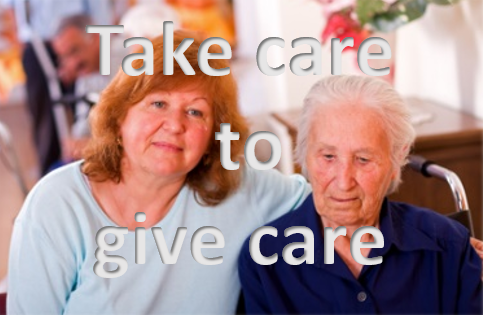
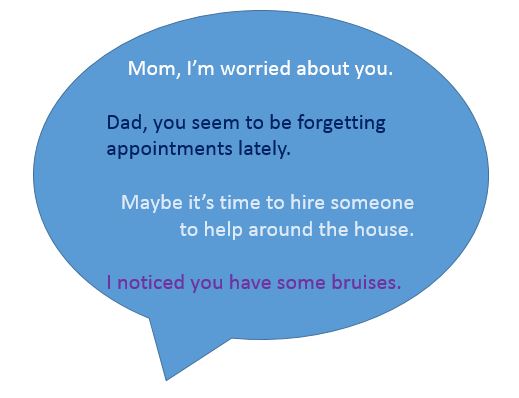








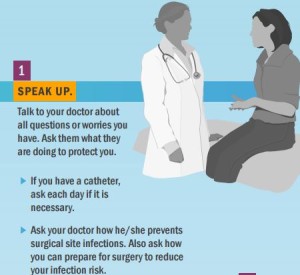
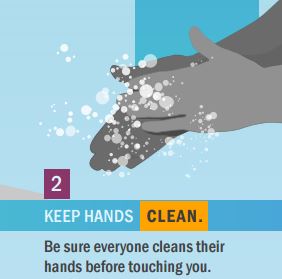

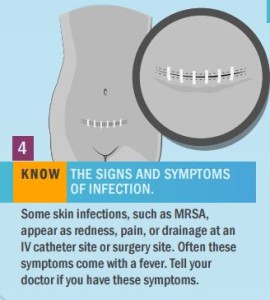

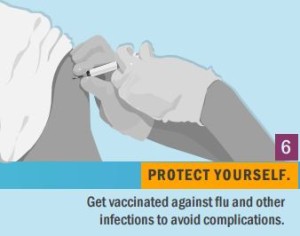
















 Popular Downloads
Popular Downloads


 Get Our Newsletter!
Get Our Newsletter! Mission Statement
Mission Statement

